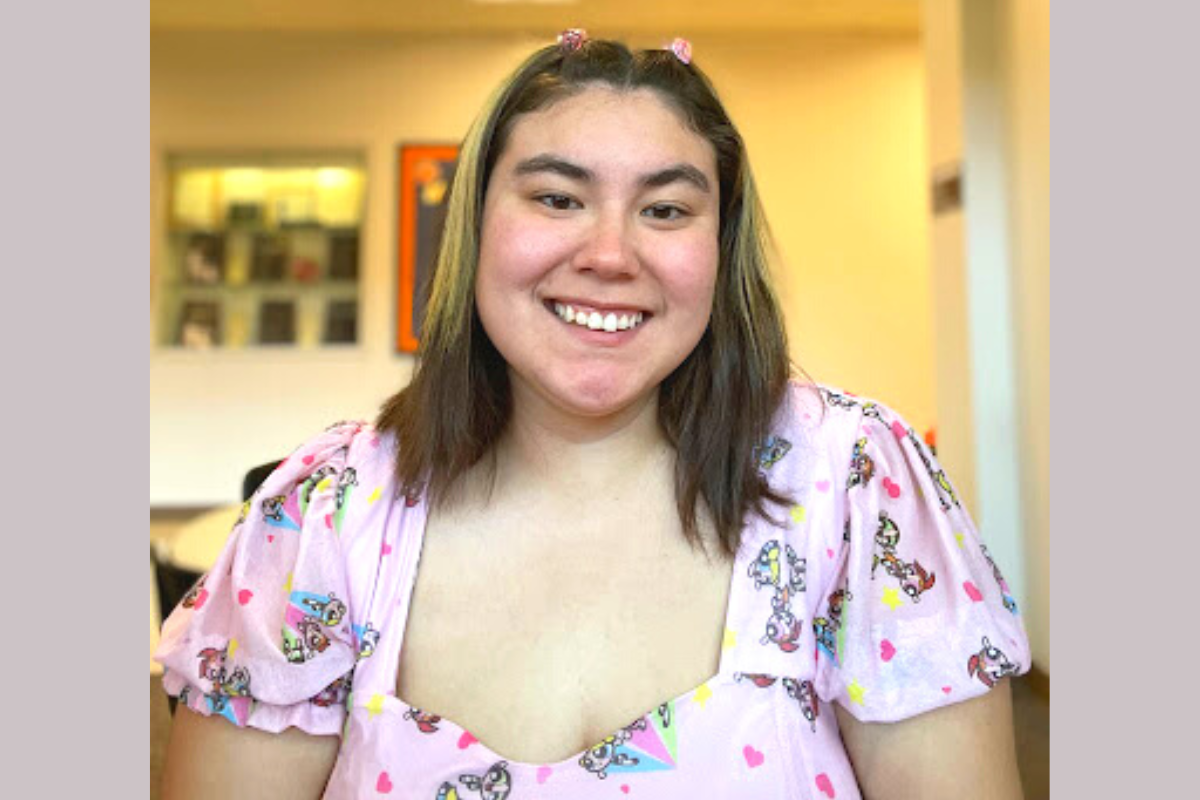Jamie Baldwin had been thinking for a while about ways that education systems need reform but gained new insight when they learned last year they were autistic.
“It feels like professors are much more willing to help me after my diagnosis than they were before,” they said. “For a few semesters my GPA had dropped below a 2.5 and no one reached out to ask me why I was struggling, but it has gotten a bit easier for me now that I have the proper accommodations for my diagnosis.”
This helped Jamie, a senior math major at Sam Houston State University in Texas, realize “education isn’t always equitable,” they say. “Whether the inequity is due to a diagnosis like mine or financial hardships that make accessing education difficult for some students, or discrimination based on race or ethnicity, there are a lot of reasons why the educational system needs to change.”
Jamie (who prefers to go by their first name in this article) is hoping their research project as part of their internship with Every Learner Everywhere in fall 2023 will provide institutions of higher learning with the data and knowledge to improve equity.
“There is so much about the educational system that could be improved, and it isn’t all the fault of the teachers,” they say. “Teachers are overworked and underpaid and not provided with the professional development or support to deal with specific student populations.”
Jamie’s research involves interviewing people who work or study at Hispanic-serving institutions (HSIs), which are defined as those who have a population of 25 percent or more Hispanic students. Jamie often isn’t recognized as Hispanic and they want their research to alleviate the burdens of discrimination that they — as a white-passing person — haven’t had.
“People doubt it all the time when I tell them, so I don’t face the prejudices and hardships that others with more melanin in their skin do,” they say. “My mom is from Mexico and melanated, and I’ve seen it with her. It’s not fun to watch.”
Jamie says that being designated as an HSI doesn’t necessarily mean they actively serve their Hispanic student body. Their goal for their internship project is to collect data on if and when HSIs do serve Hispanic students effectively and that other institutions might benefit from.
“Unfortunately, minority students face more hardships based on the color of their skin than white peers, and sometimes the institutions they attend don’t have services or programs to assist them in the transition to college,” Jamie says. “But even when they do, there is always something better they can do even for that portion of the student body.”
This research is particularly important to Jamie as a resident of Texas, which has passed Senate Bill 17. S.B. 17 prohibits all institutions of higher education in the state from establishing or maintaining a diversity, equity, and inclusion office on campus, or from hiring or assigning an employee of the institution, or contract with a third party, to perform the duties of a diversity, equity, and inclusion office.
That may mean the end of a program that has been meaningful to Jamie personally — evolve, which provides support services to female transfer students — as well as support services for Black and Hispanic male students.
“Our former directors have seen data that these programs help these students do better in class and on campus, and give them a way to ask for help when they need it,” Jamie says. “These organizations can immensely help the minority population. [When the bill goes into effect], we are expecting to see data show that minority students won’t thrive as they did before because they won’t have that safe place to go where they can be themselves and feel accepted and be able to relate to one another.”
Jamie is hoping their research with Every Learner will provide them with the skills and research experience to become a data scientist for a social justice organization so they can continue their quest to provide data to support equity in education.
“All the systems that deal with the disenfranchised, whether higher education or the justice system, can do better,” Jamie says. “I want to be the one making it better, even if I’m not the political person actually making the laws. I want to have the data to show why a particular law should be enacted or put in place or to show how bad a situation is [for a minority population]. My data could back up the policymakers and provide them with the data they need. I am only one person, but I want to start somewhere.”
Jamie believes that through research and curated data, education could be reformed and improved for all students: “A lot of autistic people tend to gravitate toward social justice fields because we know how hard it is to live in a world that isn’t built for us, and we know what it feels like to just have so many burdens on everyday activities that other people can do so easily. We don’t want to see other people feel that same way.”
Read more about disaggregated student data in Toward Ending the Monolithic View of “Underrepresented Students”

